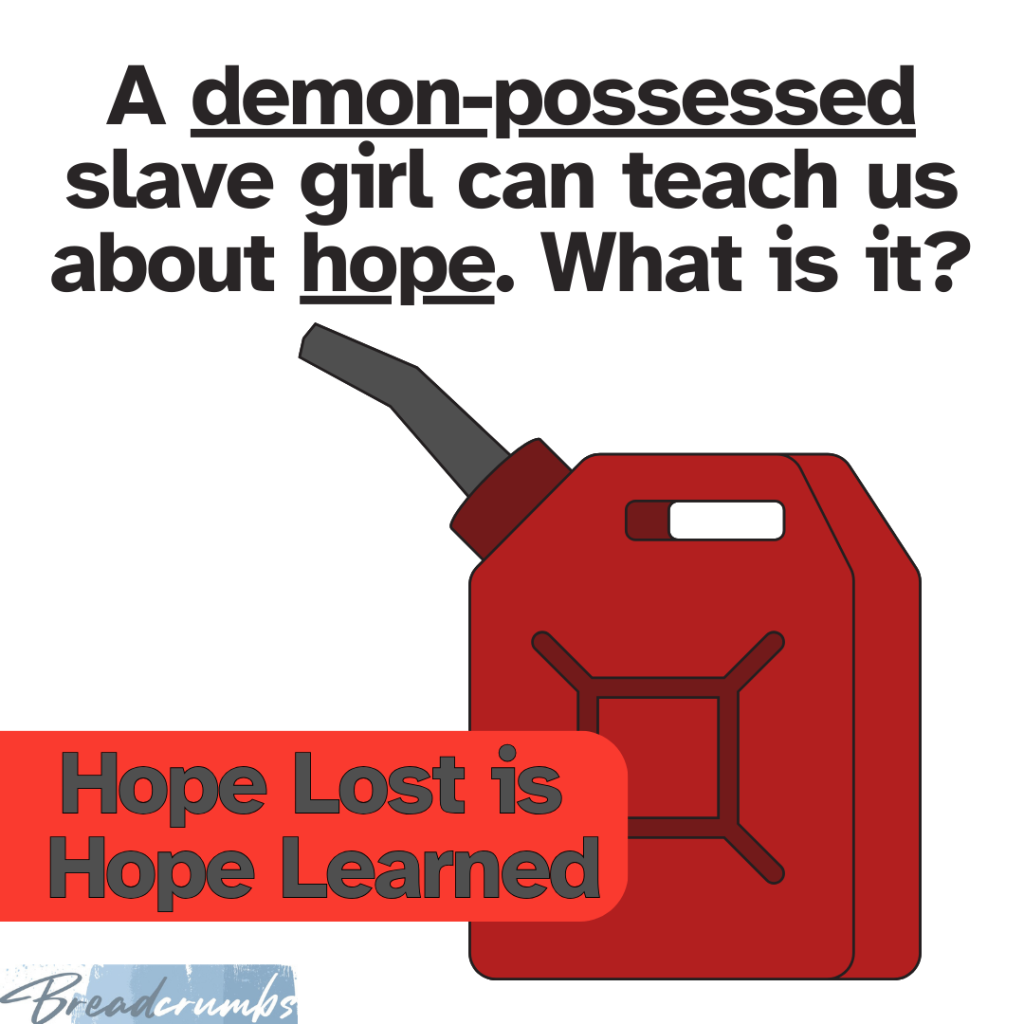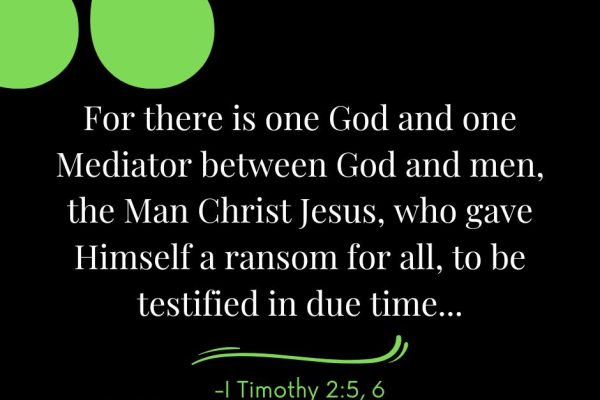
When the apostle Paul was preaching in Philippi, he was pestered by a persistent, possessed prophetess (say that 3 times fast!).
“Now it happened, as we went to prayer, that a certain slave girl possessed with a spirit of divination met us, who brought her masters much profit by fortune-telling. This girl followed Paul and us, and cried out, saying, ‘These men are the servants of the Most High God, who proclaim to us the way of salvation.’ And this she did for many days.
But Paul, greatly annoyed, turned and said to the spirit, ‘I command you in the name of Jesus Christ to come out of her.’ And he came out that very hour. But when her masters saw that their hope of profit was gone, they seized Paul and Silas and dragged them into the marketplace to the authorities.” (Acts 16:16-19, Unless otherwise stated: Scripture is taken from the New King James Version®. Copyright © 1982 by Thomas Nelson, Used by permission. All rights reserved)
If we are careful to identify why the masters’ hope was gone, we can understand what hope is. Examining it this way, we will find that our current use of the word lacks the biblical “Umph!” found in this term of promise and encouragement.
Often, we use hope to mean a strong desire for something when we have no certainty that it will become reality. For instance, if you are driving and your low fuel light comes on you might say, “I hope I make it to the next gas station.” Depending on your situation, you may feel strongly that you won’t make it, or strongly that you will. Whatever the case, you are assuming some chance that you will run out of fuel.
Even though you want to have enough fuel, you might not get what you want.
How does that align with how the word hope is used in our illustration from Acts?
“But when her masters saw that their hope for profit was gone…”
Did the owners of the slave girl want a profit? Sure! What happened? The demon who enabled her divination was cast out, so she no longer had the supernatural ability that her masters were marketing. Without that ability, they had no reason to believe they could use her to make money that way. If there is no reason, there is no hope. The Bible uses hope this way indicating that it means more than a desire, but an expectation, based on proof, that something will be.
The proof we have for biblical hope transcends physical expectation. It is based on faith. Faith is the evidence God has given us, through His Word, about the things we cannot see (Heb 11:1). Take Abraham as an example. He and Sarah were old and infertile. They had no reasonable physical expectation to have children. However, he could have hope in having a child because God promised they would. God keeps His promises. That is why it is said that Abraham was one “who, contrary to hope, in hope believed” (Rom 5:18).
Christian hope is not just a wish. It is the assurance, based on evidence, that our desires for the ultimate promises in Scripture will come to be.
Let’s hope,
Van




